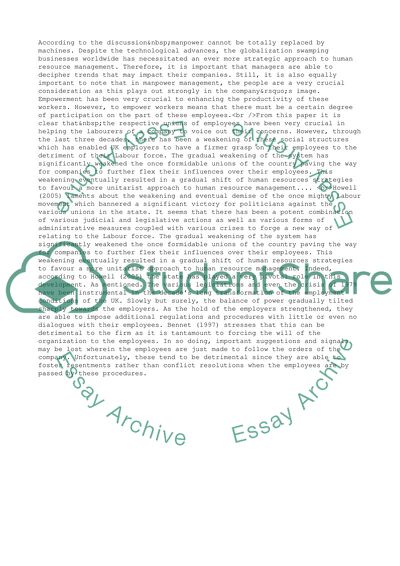Cite this document
(“UK Employers and Human Resource Management Essay”, n.d.)
Retrieved from https://studentshare.org/management/1433871-over-the-past
Retrieved from https://studentshare.org/management/1433871-over-the-past
(UK Employers and Human Resource Management Essay)
https://studentshare.org/management/1433871-over-the-past.
https://studentshare.org/management/1433871-over-the-past.
“UK Employers and Human Resource Management Essay”, n.d. https://studentshare.org/management/1433871-over-the-past.


